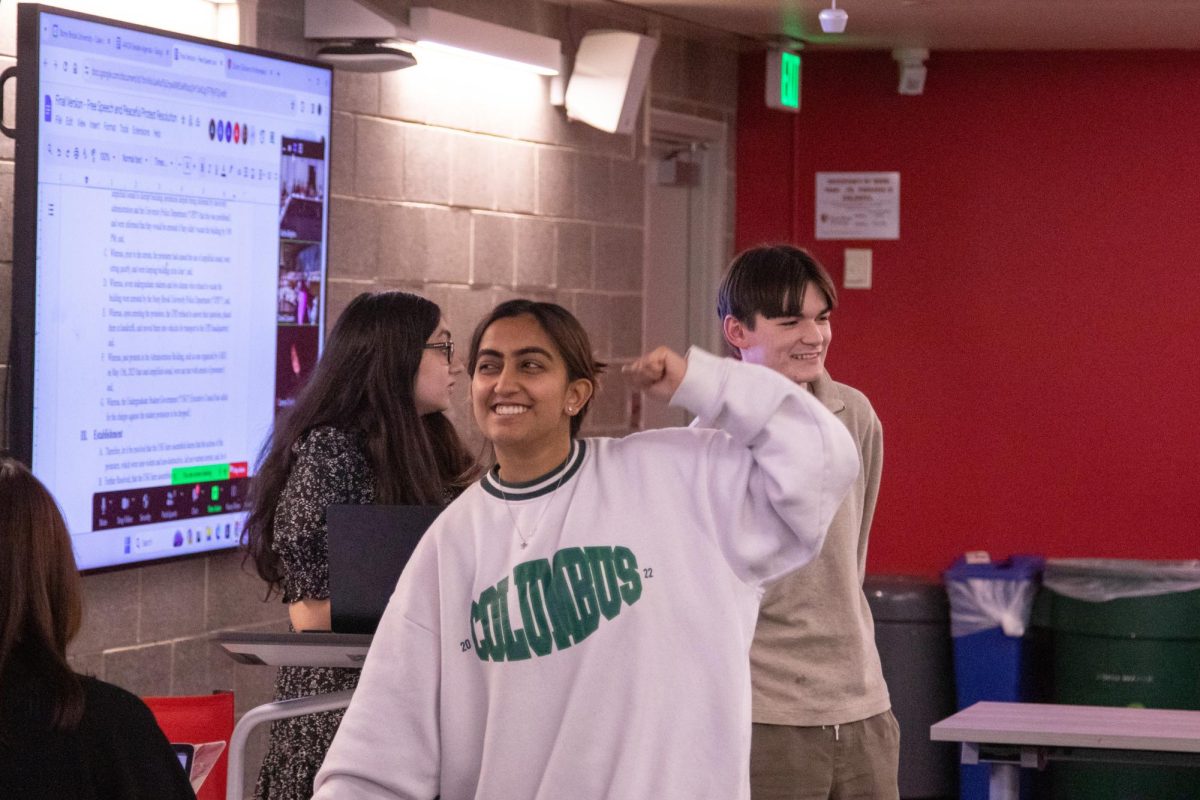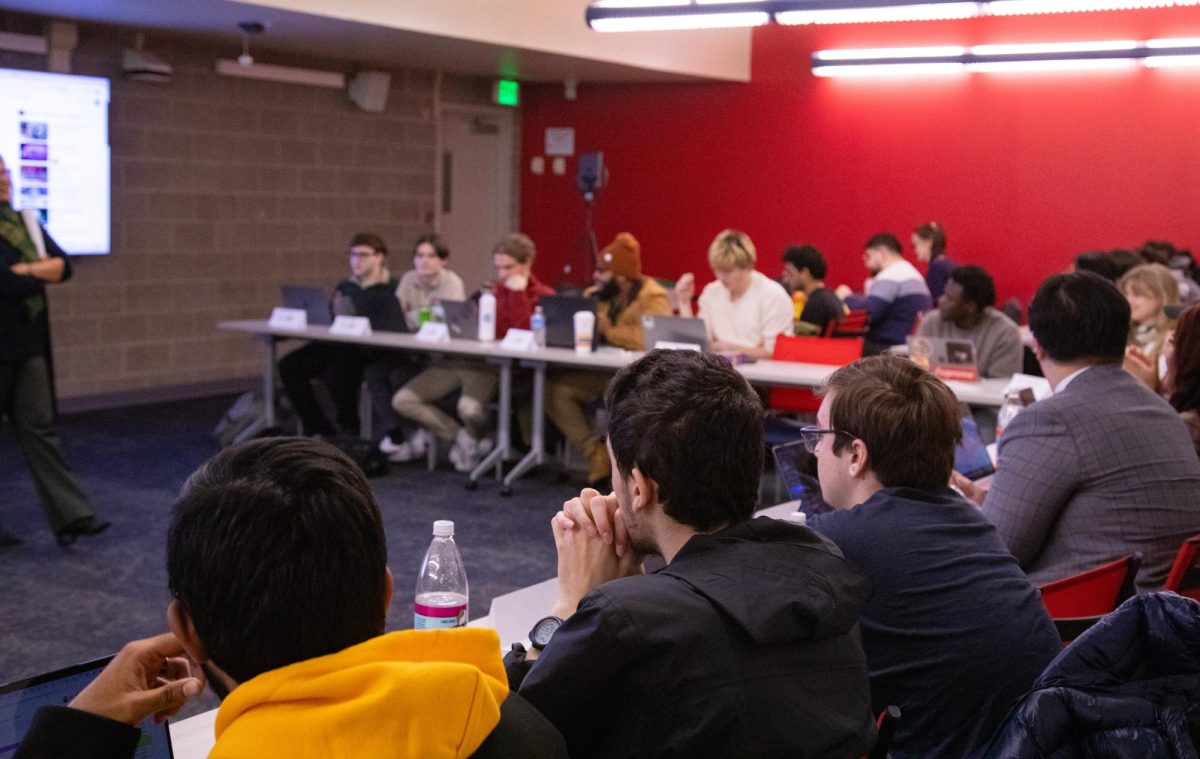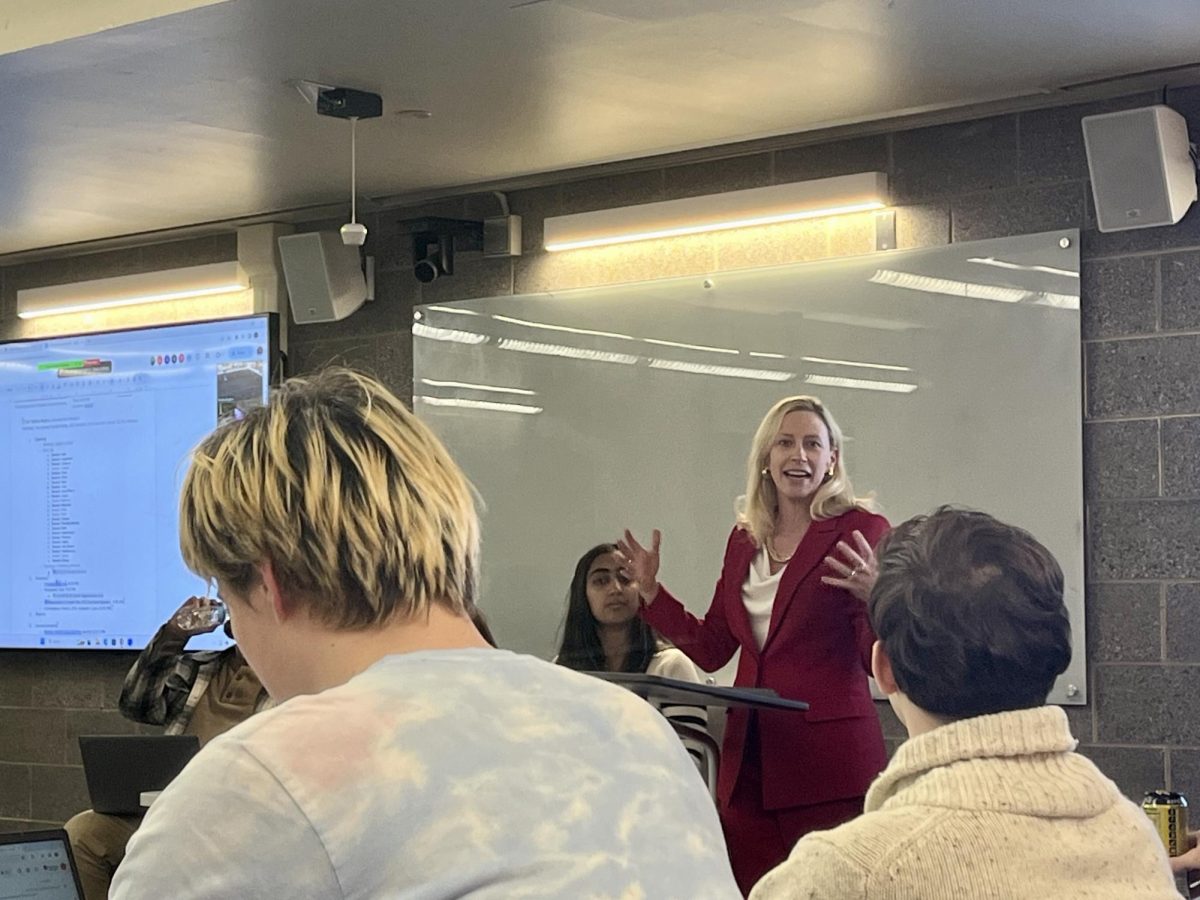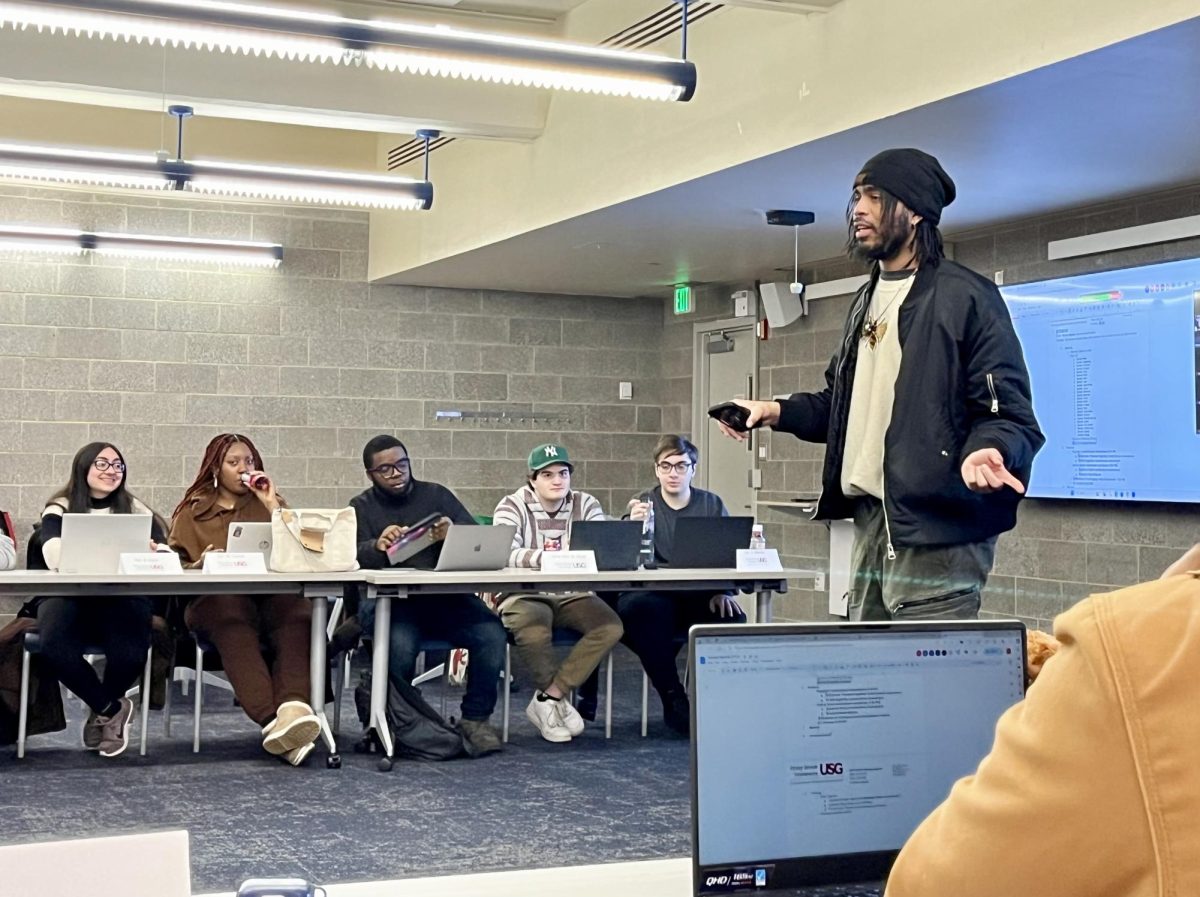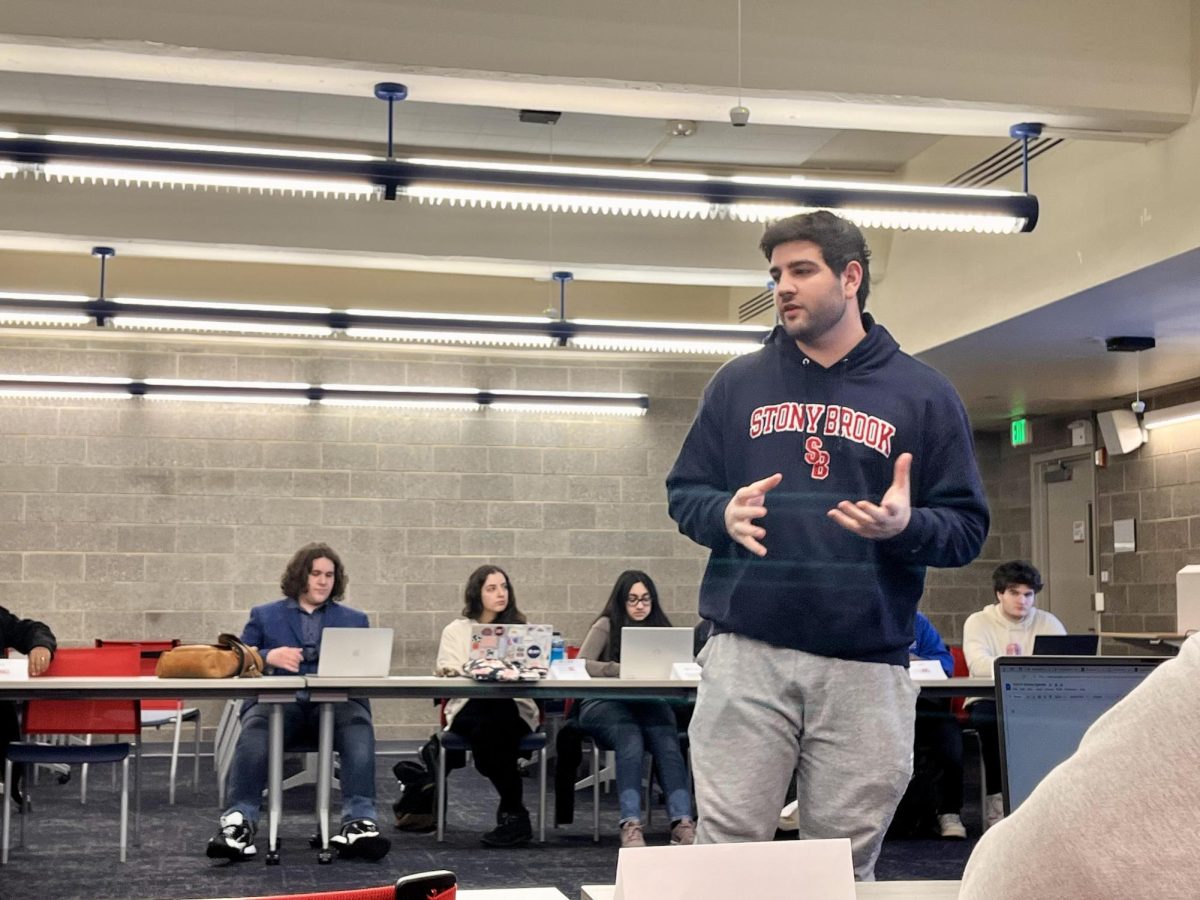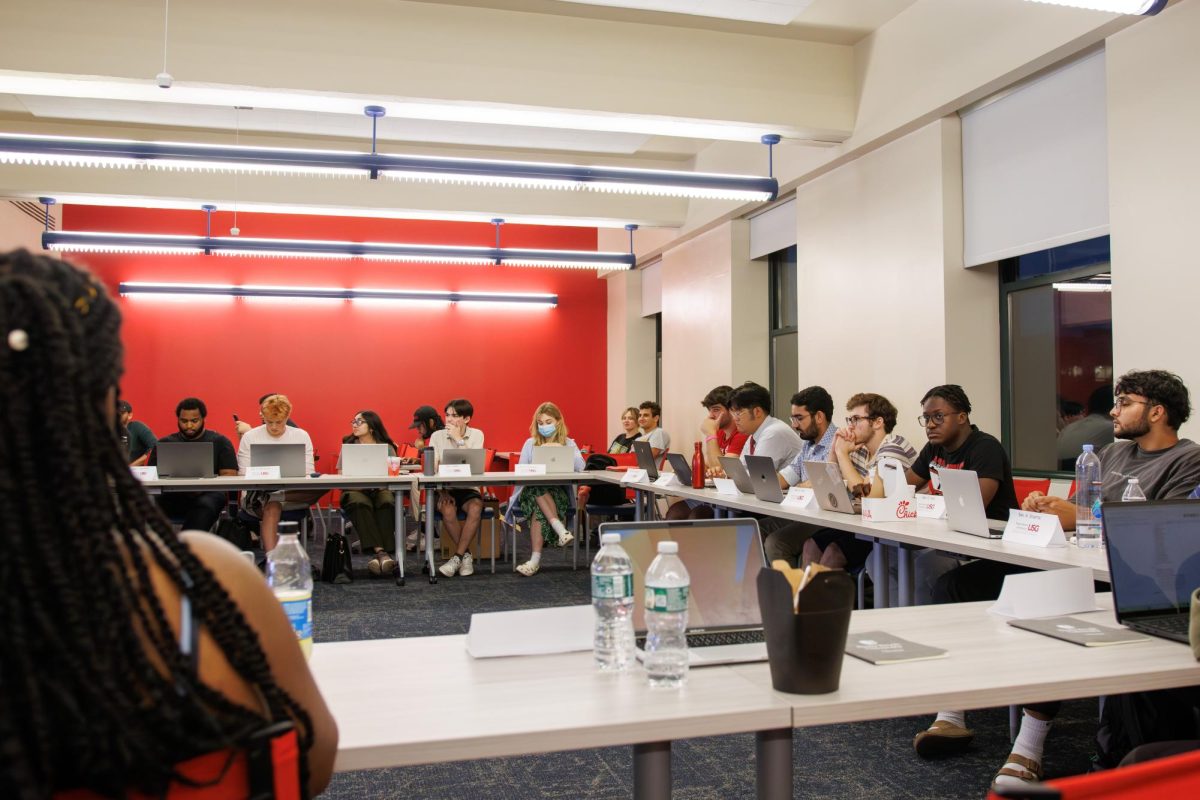
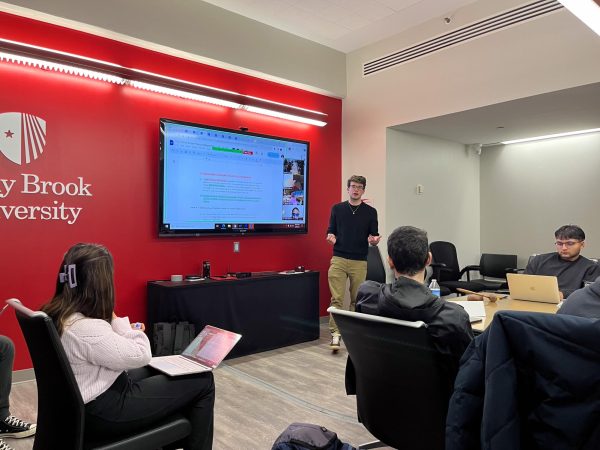
The Stony Brook Undergraduate Student Government (USG) Senate passed the Judicial Board Amendment, which will reintroduce the Judicial Board to USG, in a Senate meeting on Thursday, February 8. The decision surrounding the new governing branch comes after three weeks of intense debate in the Senate on whether the branch should return and how its Justices would be appointed.
In the Senate’s previous meeting, the body amended the language of the draft to make all five Justices elected by Stony Brook students. When the members of the Vetting and Legislative Review Committee (LegVet Committee) reviewed the amendment, its members discussed details the Senate did not originally consider.
Members of the Committee, as well as USG President Devin Lobosco, expressed concerns in the Senate meeting about how the decision would affect the impartiality of the Justices.
“The Chief Justice should be elected, but the main issue is with electing everyone,” Lobosco said. “Our election turnout is always not the best. We shouldn’t be pulling anybody, and we want people to be impartial and from diverse backgrounds.”
Lobosco also pointed out that in most elections, USG struggles to get the minimum number of students needed to fill the senate on the ballot, indicating that finding individuals to fill the seats of the Judicial Board would be a challenge if an election-only process was used.
Luca Rallis, at-large Senator and member of the LegVet Committee, elaborated to the Senate as to why there was a different version of the Constitutional Amendment presented to them.
“We came to the realization that a lot of the issues [stemmed from the fact] that there was so much power in the hands of the president,” Rallis said. “The compromise was that the power wasn’t all centralized and to let [the LegVet committee] be part of the process.”
Executive Vice President Nistha Boghra pointed out that the very notion of a justice campaigning would threaten their impartiality.
“If someone is running then they have to campaign,” Boghra said. “They [would] have ideas, they are not impartial [then].”
At-large Senator Yuchen Zhang expressed how the USG General Election is “essentially” a popularity contest and found that it is better to “equally spread the power across USG.”
As a result of the discussion, the Senate voted to change how the four Associate Justices would be appointed. In a unanimous decision, the LegVet Committee will be in charge of the appointment process and the Chief Justice will be elected by the student body to include their opinions in the Judicial Board.
Potential associate justices will first be evaluated by the LegVet Committee, then by the Senate and finally by the Executive Council. Previously, the draft stated that candidates would be vetted through the President, then the LegVet Committee, then the Senate and finally the Executive Council.
“[The LegVet Committee] can potentially interview two to three candidates and then from there, we can choose the best to send to the Senate versus the original system where [it is only] the President,” at-large Senator Adam Pareek said. “It’s a lot harder to show bias with six people [reviewing].”
Pareek, who initially opposed the amended draft of the Associate Justices’ appointments, later clarified how he and others who felt the same way in the LegVet Committee were more comfortable with what Lobosco presented in the Senate meeting.
“When Devin came back to us, what happened was he made the changes that we wanted,” Pareek said. “That’s why I and I feel like the other three Senators who opposed it at first, which is why it failed originally, now support it.”
Thor Hawrey, a former Associate Justice who served on the Board before it was dissolved in 2019, came to the Senate meeting to provide first-hand information of what it used to look like and to offer advice on how to best select the Justices.
While Hawrey initially disagreed with the prospect of the student body electing justices, he found the decided system of the LegVet Committee electing the justices satisfactory.
“We had the ability to dissolve all of USG,” Hawrey said in an interview. “If you want to have individuals in the position to make that decision, they can’t be someone winning a popularity contest.”
Upon finalizing last-minute concerns about the Judicial Board and hearing Hawrey’s approval, the Senate moved to vote on the Constitutional Amendment of the Judicial Board. The Senate approved it in a unanimous decision.
The special election that will determine whether a judicial branch is officially established in USG is set to occur at the end of February. Confirmation of the set date is still under review as USG wants to ensure that the student body has enough time to fully understand the Amendment and the proposed reinstated branch.
How USG will convey information about the election has not been confirmed. According to Lobosco, USG may decide not to hold town halls again, unlike what was done with the student activity fee increase. Lobosco cited poor attendance as the reasoning for this, and said USG would investigate other ways of reaching the student body.
If a majority of students vote to approve the Amendment, students can campaign and run for Chief Justice in the general election. There is no set date for when the general election will be yet, but it is planned to happen around late March, according to Lobosco.
Meeting minutes from this week’s Senate meeting will be posted on USG’s website within one to two weeks.















